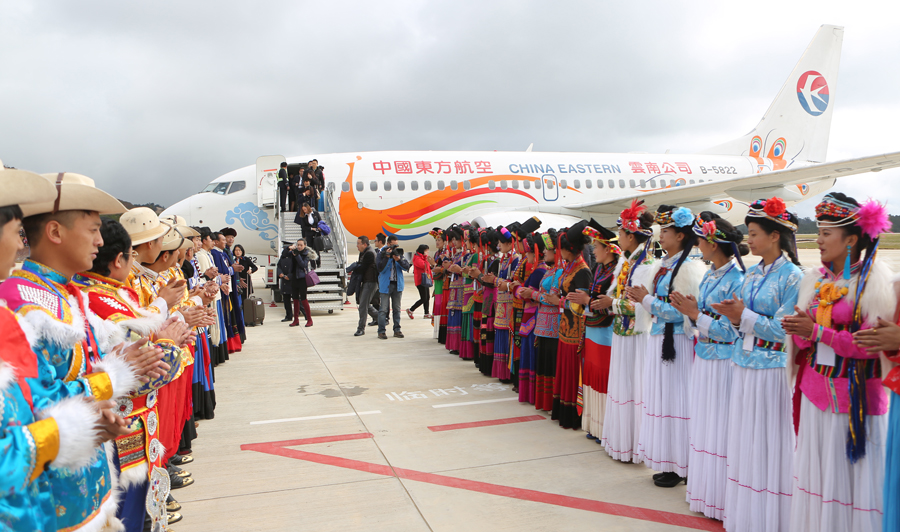Smaller airports seeing new surge in business

Domestic airlines seek opportunity for profit in third, fourth-tier cities

More domestic airlines are launching new flights connecting less-densely populated smaller Chinese cities, and those areas are seeing more remarkable growth in air traffic than major cities.
Last year, the airports of Quanzhou in Fujian province, Nantong, Changzhou and Xuzhou in Jiangsu province, Jieyang in Guangdong province and Yichang in Hubei province saw their annual passenger throughput reach 2.5 million, a jump of more than 30 percent year-on-year, according to data from the Civil Aviation Administration of China.
In 2018, passenger throughput growth of major cities' airports was less than 10 percent year-on-year, while the growth rates of a number of third - and fourth-tier cities' airports were higher than 20 percent, the data showed.
"It's key for carriers to seize good flight times. Many domestic airlines would like to launch flights to major cities like Shanghai, Nanjing and Hangzhou, but flight times available in first - and second-tier cities are quite tight," said Li Xiaojin, a professor of aviation economics at the Civil Aviation University of China in Tianjin.
"Instead, by launching new flights at smaller cities, airlines may be able to realize net profits after two to three years of operations. In the beginning stage, there are usually some favorable policies in price and services. In the next few years, the flight times available at those smaller airports may become precious, as well," he said.
Shanghai-based Chinese budget carrier Spring Airlines has established three strategic bases since 2017. They are the airports in Yangzhou, Jiangsu province, Ningbo, Zhejiang province, and Shantou, Guangdong province, in addition to its main hub airports in Shanghai. Without much competition from major State-owned airlines, Spring has achieved significant room for growth of launching more flights.
In summer and fall flying seasons of last year, about three quarters of Spring's flights departed from third-tier cities. Spring has a promising prospect, driven by the growing passenger demand from smaller cities, according to a research report of Changjiang Securities.
"We also focus on developing other markets besides Shanghai, by following strategies of differentiated competition, and to further tap the huge demand emerged from potential markets," said Zhang Wu'an, vice-president and spokesman for Spring Airlines.
"For domestic flights, the newly added flight times at first-tier airports were quite scarce last year, and the scale expansion of second-tier airports was slowing down. Facing the bottlenecks of capacity increase, we need to build a more diverse and tridimensional flight network and hub structure," he said.
In the meantime, Shandong province in East China will spend 430 million yuan ($64 million) this year to support the infrastructure building and service improvement of its airports in Jinan, Dongying, Yantai, Weifang, Jining, Weihai, Linyi and Rizhao, according to Shandong Province Finance Bureau.
Particularly, the local government said it will spend 4.8 million yuan to subsidize small and medium-sized airports - with annual passenger throughput of less than 2 million - to alleviate their operational and financial pressures.
"Since 2015, the local government has accumulatively provided 210 million yuan to support operations of Yantai airport, and its passenger throughput has expanded by 25 percent annually," the local government said in a statement.





































